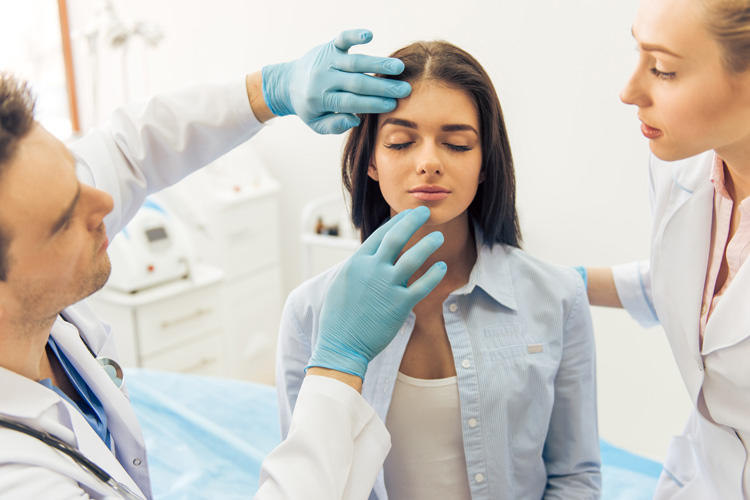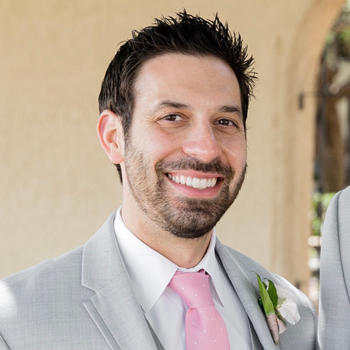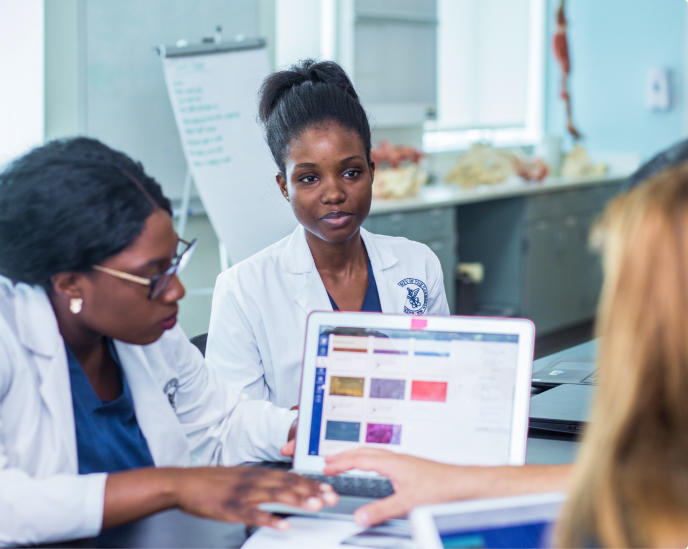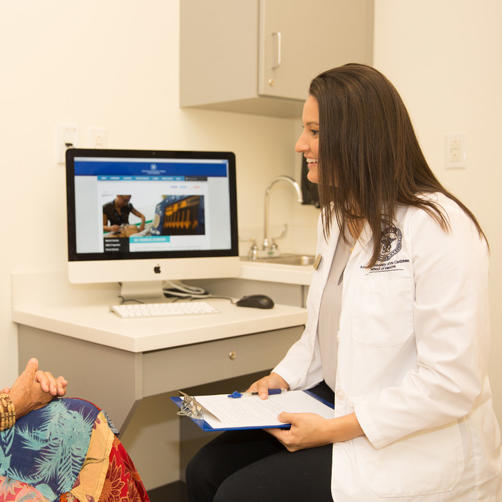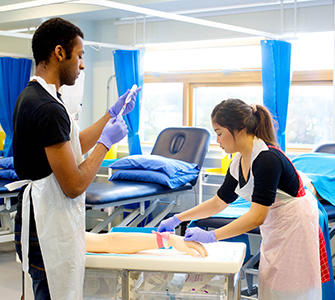If you have decided you want to be a physician, and you’re considering medical specialties down the road, take a look at this one: plastic surgery. A plastic surgeon is an expert in the repair, reconstruction, or replacement of physical defects involving the breast and trunk, craniomaxillofacial structures, external genitalia, extremities, hands, musculoskeletal system, and skin, or the cosmetic enhancement of these parts of the body. Plastic surgeons also use cosmetic surgery to improve overall appearance and to optimize the outcome of reconstructive procedures.
WHAT DO PLASTIC SURGEONS DO?
Plastic surgeons treat problems of the body’s surface covering and the underlying tissues that give it structure. They specialize in grafting and shaping the skin and sculpting or implanting the underlying tissues.
Many people are familiar with the role that plastic surgeons play in cosmetic surgeries that improve aesthetic appearance, such as nose and ear jobs, breast and lip augmentation, and liposuction. But plastic surgery also involves correcting both cosmetic and functional deformities, reconstructing damaged tissues, and the treatment of scars.
Plastic surgeons must acquire special knowledge and skill in the design and transfer of skin flaps, in the transplantation of tissues, and in the replantation of structures which are vital to the performance of plastic surgery. Skills in excisional surgery, in the management of complex wounds, and in the use of allopathic materials are also required. Plastic surgeons are experts in artistic anatomy, diagnosis, instrumentation, oncology, pathology, physiology, and surgical design, as well as bacteriology, biomechanics, embryology, and pharmacology.
HOW TO BECOME A PLASTIC SURGEON
To be a plastic surgeon, you must first become a physician by graduating from an accredited medical school—such as American University of the Caribbean School of Medicine* (AUC). The path to a medical degree at AUC, which is located on the Caribbean island of St. Maarten, is the same as at United States-based schools: two years of medical science classes and two years of hands-on clinical training. For AUC students, the medical sciences curriculum is completed at the St. Maarten campus; the clinical training can be completed at affiliated teaching hospitals in the United States or in the United Kingdom.
AUC also partners with the University of Central Lancashire (UCLan) in the United Kingdom for a “UK-track” option. The first two years at UCLan focus on studying the medical sciences. Upon completion, students receive a Post Graduate Diploma in International Medical Sciences, which AUC recognizes as equivalent to its own medical sciences curriculum. During the final two years, students can then complete clinical training across AUC’s network of affiliated teaching hospitals.
During clinical training, AUC students complete core rotations in internal medicine, surgery, pediatrics, family medicine, obstetrics/ gynecology, and psychiatry. Each individual student, then, selects from among dozens of specialty elective clerkships to fulfill their remaining clinical requirements.
During the fourth and final year of medical school, students prepare for the next phase of their medical education: residency. At AUC, the Office of Career Advisement (OCA) can help students determine which residency specialty—such as plastic surgery—suits them best. The OCA then helps students navigate the National Resident Matching Program® (NRMP®)—a placement system which medical students who wish to become licensed in the United States use to “match” with a medical residency. Residencies are required to become a licensed physician, and they last from three to eight years. Integrated plastic surgery residencies–which cover general surgery as well–run six years. Future plastic surgeons may also complete a five-year residency in general surgery before entering a three-year plastic surgery residency. Plastic surgeons may then enter a fellowship of one or two years to specialize in such fields as burn surgery, craniofacial surgery, gender surgery, hand and upper extremity surgery, neuroplastic surgery, or reconstructive surgery.
In 2021, AUC had a first-time residency attainment rate of 92 percent for 2020-2021 graduates—on par with the overall match rate (92.8 percent) for medical schools in the United States. In recent years, AUC MD’s have matched with general surgery residencies at such hospitals as Flushing Hospital Medical Center in New York; Kendall Regional General Hospital in Florida; Mt. Sinai Hospital Medical Center in Illinois; and Riverside Community Hospital in California.
Plastic and maxillofacial surgeons are certified by the American Board of Plastic Surgery, and they may apply for membership in the American Society of Plastic Surgeons and related professional societies.
MEET A PLASTIC SURGEON
Edward Daniele, MD, a 2014 AUC graduate, is a Plastic Surgery Fellow at the University of Illinois at Chicago. We asked Dr. Daniele to describe the role of a plastic surgeon.
Q: Why did you decide to go into your specialty?
A: My love for the field of plastic surgery grew throughout my general surgery residency at Texas Tech University. Plastic surgeons treat everyone, both pediatric and elderly, and can reconstruct defects from head to toe. I loved that plastic surgeons can find a myriad of ways to solve a problem.
Q: Any advice to medical students considering the specialty?
A: My advice might be cliché, but looking back at my last eleven years in the medical field (four years of medical school, five years of general surgery residency, two years as a plastic surgery fellow), the one thing I can confidently say is “Never give up.” I can still hear my college advisors tell me I won’t make it in medicine, and other medical students tell me I can’t match into a surgical specialty. This did nothing but drive me to work harder and prove everyone wrong.
Q: What’s the most rewarding part of your job?
A: The most rewarding part of my job is simply having the privilege to take care of patients. I had a mentor once tell me in training that "this is the greatest job in the world," and it is true. Being able to wake up every day and treat patients surgically, dealing with things from maxillofacial and hand trauma to cleft lip and palates, is an honor that comes at no small cost, and something that I take pride in every single day.
If you want to become a doctor, and a career as a plastic surgeon appeals to you, learn more about the AUC MD Program and investigate the Office of Career Advisement. When you’re ready, take the next step on your path to a specialization in plastic surgery: apply for admission to American University of the Caribbean School of Medicine.
Related Resources:
- Types of Surgeons
- Designer Changes Careers to Pursue Surgery
- Bridging the Gender Gap: Women in Surgery
- 5 Questions with Chief Surgery Resident Joe Watson (‘12)
*American University of the Caribbean School of Medicine is accredited by the Accreditation Commission on Colleges of Medicine (ACCM, www.accredmed.org), which is the accreditor used by the country of St. Maarten.


